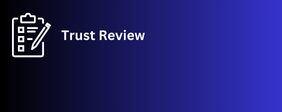Enterprise Resource Planning (ERP) is an incredibly important piece of the business puzzle. These integrated management systems are built to pull together a company’s financials, supply chain, operations, commerce reporting, manufacturing, and human resources. Many companies attempt to piece together multiple applications to make this work but, inevitably, those “frankensteined” systems rarely work as well as intended.
Given how overburdened the healthcare industry is at the moment, every single thing that sector can do to keep everything operating smoothly. Even during non-pandemic periods, ensuring any larger business within the realm of healthcare can handle the never-ending deluge of business decisions and information is a task that cannot be handled efficiently unless the right tools are used.
That’s precisely why businesses within this field should turn to an ERP system.
What Is an ERP?
To put it simply, ERP is a type of job function email list software. That assists in the management of day-to-day business activities. Those activities can include accounting.
Material Requirements Planning (MRP) was the first type of system created for this purpose. Which makes it easier to link departments and functionalities from within a single source of truth. And as your business scales. Even the individual tasks can become daunting.
What Are the Benefits of an ERP for Healthcare?
For the healthcare industry in particular. ERP systems offer numerous benefits. They include:
- Improved data management and storage
- Automation of administrative tasks
- Greater productivity and efficiency
- Better compliance with healthcare regulations, guidelines, and standards
- Reduced costs
- Better patient care and outcomes
2 Open-Source ERPs for the Healthcare Industry
1. Oracle NetSuite ERP
Oracle NetSuite ERP is one of the the benefit of this conversation is that most popular. cloud-based ERP systems available for small, medium, and large businesses. This ERP solution includes everything you need and unifies. It all into a cloud-first system that adapts to the ever-changing landscape of healthcare.
With NetSuite ERP you can improve your business visibility and transparency, streamline reporting and compliance, improve customer service and partner engagement, integrate budget and forecasting, manage subsidiaries, business units, and legal entities, and handle different currencies, taxation rules, and reporting requirements.
2. Focus X
Focus X is a fourth-generation ERP mobile lead system that is. Like NetSuite, delivered via the cloud. With Focus X, you’ll find dedicated customer and vendor portals, so you can empower those people to serve themselves, so your staff isn’t spending an inordinate amount of time answering questions and handling basic tasks that can be taken care of by others who aren’t on the payroll.
Focus X includes all of the features you’d expect to find in an ERP platform, including financials, data analytics, real-time visibility, automation of fundamental operations, AI and ML-driven statistics, predictive analysis, and forecasting.
One area that makes Focus X interesting is that of integration. This ERP tool can integrate with such services as Magento, QuickBooks, Paypal, Stripe, Google Workspaces, Office 365, Skype, and MailChimp.
